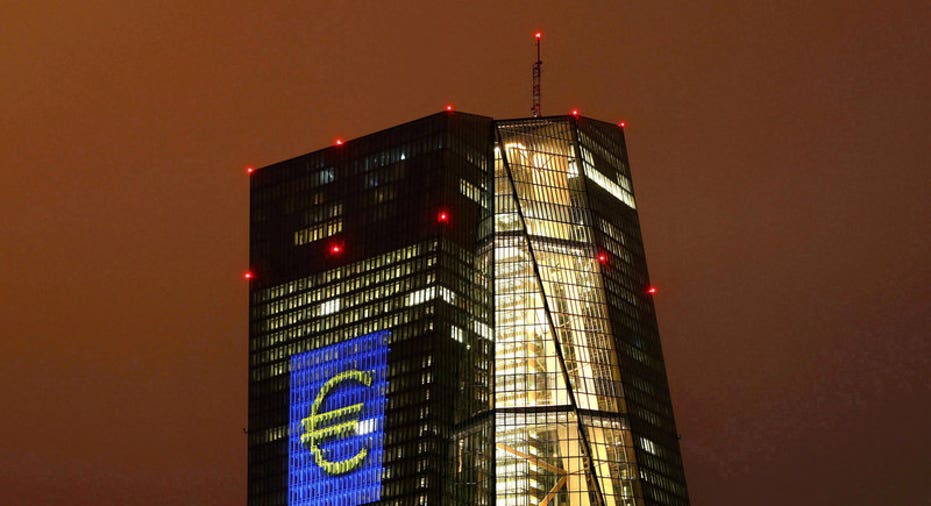Cheering better growth, ECB still to keep policy, stimulus unchanged

FRANKFURT – With euro zone growth and inflation slowly picking up pace, the European Central Bank is set to argue on Thursday that its extra-easy policy stance is still needed to keep the recovery on course.
It is all but certain to leave current monetary policy in place and maintain a promise for lengthy stimulus, having extended its bond-buying program just last month.
ECB President Mario Draghi can argue the bank has done its part to mend growth, but he will also note the recovery is not self-sustaining, underlying inflation is weak and political risk from key elections weighs on the outlook.
So turning down the ECB taps now is inappropriate, he is expected to say.
On the face of it, Draghi should be relaxed. Inflation hit a three year high last month, manufacturing activity is accelerating and confidence indicators are firming, all pointing to solid growth at the end of last year.
Indeed, euro zone business growth was the fastest in more than five years in December, order books are surging on export demand, and consumption is holding up, despite rising energy costs, all pointing to the sort of resilience not seen since before the bloc's debt crisis.
The underlying picture is mixed, however, giving Draghi plenty of arguments to bat back criticism, particularly from Germany, the bloc's biggest economy and the ECB's top policy foe.
Inflation is still just half of the bank's 2 percent target and the jump is mostly down to higher oil prices while underlying price growth remains dangerously weak.
The market euphoria after Donald Trump's surprising U.S. election win is also yet to be backed up concrete policy action and the threat of more protectionist policies from the United States and possibly Britain could reverse market sentiment.
"The December decision has put the ECB on autopilot at least until the summer and until after the Dutch and French elections," ING economist Carsten Brzeski said. "This autopilot should also immunize the ECB against short-term volatility in macro data."
The ECB announces its rate decision at 1245 GMT and Draghi holds a news conference at 1330 GMT.
GERMAN ANGST
The ECB last month agreed to cut its asset buys by a quarter from April but extended the 2.3 trillion euro scheme, known as quantitative easing, until the end of the year, promising substantial accommodation and extended market presence.
The extension threatens to reignite tensions between the bank and Berlin, particularly as Germany heads towards an election in the fall and with Finance Minister Wolfgang Schaeuble often pointing the finger at the ECB for problems.
Berlin argues that super cheap borrowing costs negate pressure on inefficient euro zone members to reform but unduly punish frugal German savers, who have seen the return on their savings evaporate.
Indeed, with German inflation rates above the euro zone average and government bond yields in negative territory across much of the yield curve, real rates are negative for many savers, pushing some voters towards the rightist Alternative for Germany party.
Still, cutting back stimulus may be a double edged sword, even for Germany, which is struggling with a bloated and inefficient bank sector. Higher ECB rates would not only cost the budget billions of euros in extra spending but would risk thwarting a still fledgling lending growth.
"The lending channel is no longer clogged up, but it is not completely free either and progress has only been possible thanks to massive measures by the ECB," Commerzbank said.
"If monetary policy were to be tightened again, and the burdens from existing loans were to increase once more, the lending channel would close and the economic picture would worsen considerably again," Commerzbank added.
The risk for now is if the oil stabilizes at a relatively high level, eventually feeding into core inflation and raising the risk that inflation could even overshoot the ECB's target.
Still, it would take years such a pass through and all indication is that Draghi would happily tolerate a modest overshoot after facing the threat of deflation for years.
(Editing by Jeremy Gaunt)



















